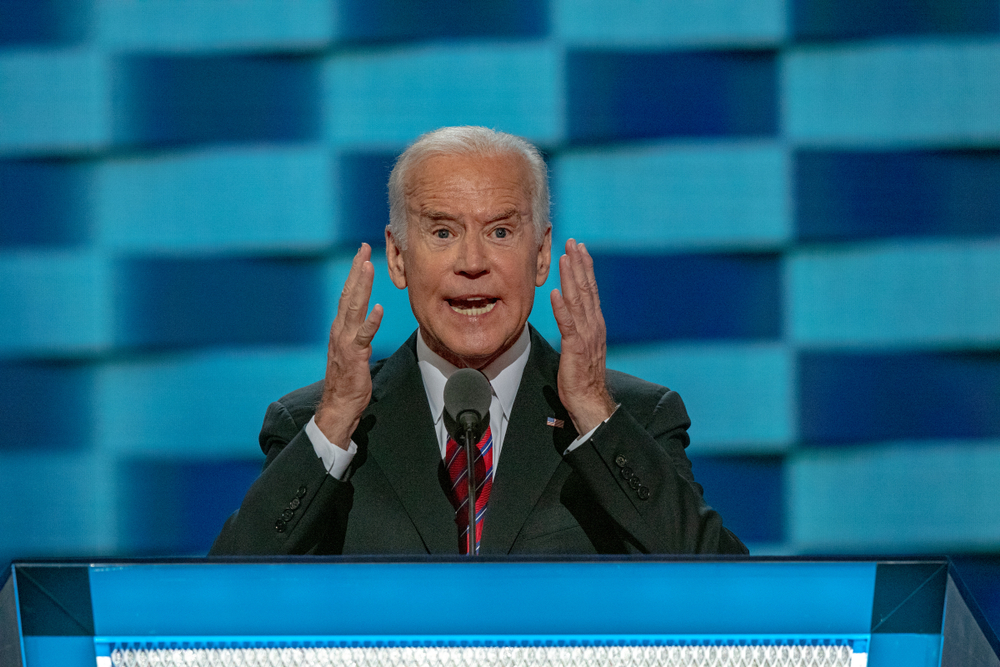Politics
Biden Destroyed Mining Projects in The U.S. But is Seeking Minerals in Neighboring Canada

The Biden administration is considering funding Canadian mining and metals companies after shutting down major mining projects on American soil. This consideration follows the new climate law, which has sent automakers searching for new sources of raw materials for electric vehicles.
To wean off Chinese mining, Biden plans to start getting minerals from Canada and sponsor the country to generate more minerals.
In March, the Biden administration triggered the Defense Production Act to facilitate increasing America’s mining operations. These minerals include lithium, nickel, cobalt, graphite, and manganese as their demand continues to rise. These raw materials are also critical for the wind and solar farms subsidy and essential for defense technologies and gadgets.
Anti-US @JoeBiden Shops For Critical Minerals In Canada While Shutting Down Mining Projects On American Soil https://t.co/uVr9bDi5zP
— EJR 🇺🇸 ⛳️ (@NCHornet) August 25, 2022
Invoking the Defense Production Act offers financial assistance to “domestic” projects securing American mineral supplies. The Biden administration recently published a report identifying Canada as a “domestic source” under the Defense Production Act.
The report reads, “Canada is a preferred partner of the United States with critical mineral resources and expertise that could be leveraged to expand processing capacity and the manufacturing of intermediate and final goods, further strengthening North American supply chains.”
In addition, Canada will be benefitting from the move Biden took in April, making Pentagon funding available for certain mining activities under the Defense Production Act.
Following the Defense Production Act, the funding is supposed to be limited to domestic sources.
However, the Biden administration has adopted an interpretation of military-sharing agreements to state that Canadian companies are “domestic” sources. This new interpretation is what qualifies Canada’s mining project U.S. financing under the law.
Republican Rep. Pete Stauber, who represents the district in northern Minnesota, gave a statement. His congressional district includes the proposed site of Twin Metals, a copper-nickel mining project blocked by the Biden administration. Stauber reproved this ridiculous plan to fund Canada while halting America’s production as he considers this move “insulting.”
Stauber told the press, “I can’t say I’m surprised since Biden has repeatedly indicated he prefers foreign labor mining for minerals instead of Americans, even though he claims to support American mining. Now he wants to use American taxpayer money to build even more wealth abroad, not at home. … We need the political will to mine here, but yet again President Biden is caving to radical activists to continue to mine abroad instead of ensuring our mineral security and dominance.”
In addition, a report from the liberal Brookings Institution published earlier this month cautioned about America’s reliance on Chinese mineral supply chains. As the tension between the two nations significantly increases, the United States and its citizens continue to get endangered.
The report, dubbed “China’s Role in Supplying Critical Minerals for the Global Energy Transition,” prompted the lawmakers to fast-track reforms of regulatory mining regimes. The current supply chains remain susceptible to China as demand for these minerals increases.
The report’s authors added, “China is the dominant global player in refining strategic minerals. Most notably, China holds 78 percent of the world’s cell manufacturing capacity for batteries, which are then assembled into modules that are used to form a battery pack.”
Debra Struhsacker, an environmental policy expert, called the effort to finance Canadian mines instead of American producers unnecessary. She said, “absolutely we do not need to finance Canadian operations, we have abundant minerals in the U.S.”
She noted a need to expand America’s mining industries and coordinate with other nations to eliminate the reliance on Beijing. Struhsacker stressed the need to expand U.S. mining operations and even coordinate with allied nations such as Canada to rid American supply chains of Chinese reliance. However, she added that the administration doesn’t need to finance projects with U.S. tax dollars beyond American borders.
“I think we should keep our financial resources in the U.S. to help stimulate development of U.S. mineral deposits,” she said.

